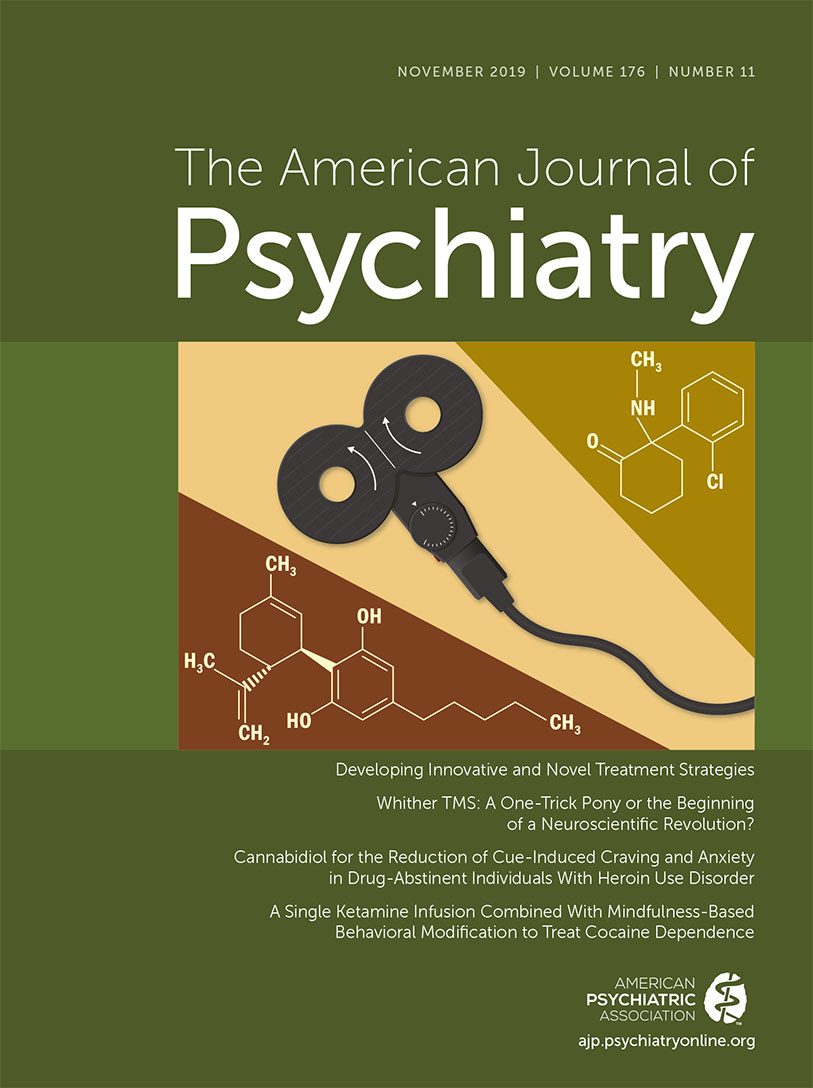A Single Ketamine Infusion Combined With Mindfulness-Based Behavioral Modification to Treat Cocaine Dependence: A Randomized Clinical Trial
Abstract
Objective:
Research has suggested that subanesthetic doses of ketamine may work to improve cocaine-related vulnerabilities and facilitate efforts at behavioral modification. The purpose of this trial was to test whether a single ketamine infusion improved treatment outcomes in cocaine-dependent adults engaged in mindfulness-based relapse prevention.
Methods:
Fifty-five cocaine-dependent individuals were randomly assigned to receive a 40-minute intravenous infusion of ketamine (0.5 mg/kg) or midazolam (the control condition) during a 5-day inpatient stay, during which they also initiated a 5-week course of mindfulness-based relapse prevention. Cocaine use was assessed through self-report and urine toxicology. The primary outcomes were end-of-study abstinence and time to relapse (defined as first use or dropout).
Results:
Overall, 48.2% of individuals in the ketamine group maintained abstinence over the last 2 weeks of the trial, compared with 10.7% in the midazolam group (intent-to-treat analysis). The ketamine group was 53% less likely (hazard ratio=0.47; 95% CI=0.24, 0.92) to relapse (dropout or use cocaine) compared with the midazolam group, and craving scores were 58.1% lower in the ketamine group throughout the trial (95% CI=18.6, 78.6); both differences were statistically significant. Infusions were well tolerated, and no participants were removed from the study as a result of adverse events.
Conclusions:
A single ketamine infusion improved a range of important treatment outcomes in cocaine-dependent adults engaged in mindfulness-based behavioral modification, including promoting abstinence, diminishing craving, and reducing risk of relapse. Further research is needed to replicate these promising results in a larger sample.



